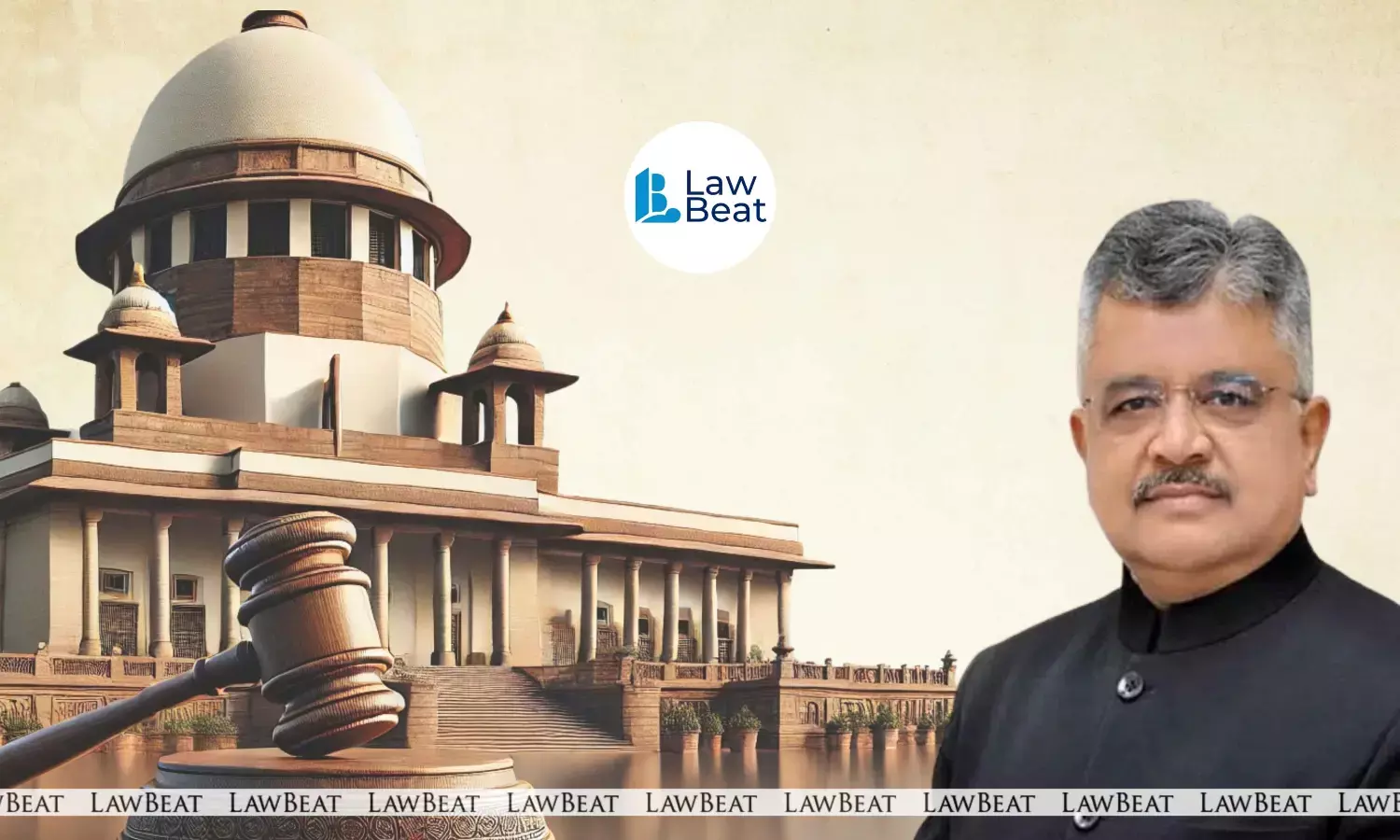Presidential Reference| Issue of Bills being withheld started recently with AAP government: Centre tells SC

Supreme Court has been told that the increased conflict between the state government and Governor over Bills recently arose with the AAP government.
Solicitor General Tushar Mehta has told the Supreme Court that issues with the Governor withholding assent on Bills is a recent phenomena which started with the Aam Aadmi Party government.
Arguing that the AAP government repeatedly filed Article 32 petitions before the Supreme Court against the Delhi Lieutenant Governor, SG Mehta said, "This started recently with the Delhi government filing article 32 petitions one after the other..". A five-judge bench hearing the Presidential Reference has further told that a Governor can withhold assent in rare cases where the issue is shockingly unconstitutional.
SG further argued that a Governor may exercise his discretion in cases where the Bill is capable of subverting the Constitution, undermining the Constitution, eroding the principles of democracy, or may have national implications.
Yesterday, the Supreme Court had posed a query to Solicitor General Tushar Mehta, after a submission was made by SG about instances under the proviso to Article 200 where the Governor can withhold his assent on a Bill sent to him. Justice Vikram Nath asked the SG if there was any formal declaration by the Governor in this regard.
Answering to the court, the SG said today, "There is always a declaration made by the Governor in either of the four courses available to him. According to me, three are correct, subject to Your Lordships deciding it. But there is a declaration."
The Supreme Court has heard various states on the reference made by President on India. The Karnataka government on September 9 told a five-judge bench of the Supreme Court hearing the Presidential Reference that a Governor cannot consider himself to be an all-pervading authority. Senior Advocate Gopal Subramaniam, appearing for the State of Karnataka, submitted President and the Governor are "titular heads" and they exercise their powers on aid and advice of the cabinet.
The Punjab government also told the Supreme Court that a Governor cannot act as a constitutional filter by taking upon himself to decide on the validity of law while his assent on the same is asked for. Senior Advocate Arvind Datar, appearing for the state of Punjab, further told a five judge bench hearing the Presidential reference on setting of timelines that laying down timelines was a part of the concept of constitutional trust.
Apart from Punjab, the West Bengal government has told the Supreme Court on September 2, 2025 that repeated withholding of assent by a Governor on bills would render the Constitution unworkable. Senior Advocate Kapil Sibal, appearing for the state, submitted before the Constitution Bench that if a Governor continues to withhold assent even after a bill is repassed by the assembly, the constitutional framework itself would collapse.
The state of Tamil Nadu also addressed the bench, submitting that a Governor is not the final arbiter or a “super chief minister.” Senior Advocate AM Singhvi, representing Tamil Nadu, argued that a Governor cannot withhold assent to kill a bill. He told the bench that even if unconstitutional bills are passed every day, courts will decide their validity, which is part of the doctrine of separation of powers.
Maharashtra government has also told the Supreme Court that assent to a Bill cannot be given by the court. "Assent to a law has to be given either by Governors or by President", Senior Advocate Harish Salve, representing Maharashtra government had submitted adding that President or Governor cannot be answerable to any court for the exercise and performance of the powers and duties of their office or for any act done or purporting to be done in the exercise of those powers.
Earlier, the central government, through Solicitor General Tushar Mehta, submitted that issues closely linked with high policy or political discretion should be treated as non-justiciable. An additional note filed by the Union stressed that judicial review must be distinguished from justiciability, as some questions require policy choices beyond judicial standards.
On August 19, the Supreme Court began hearing the reference made by President Droupadi Murmu. During one of the hearing the Supreme Court of India said that judicial activism must remain, but it should not turn into judicial terrorism or judicial adventurism. "I have always deprecated judicial overreach... I have always said judicial activism must remain, but it should not turn into judicial terrorism..," CJI BR Gavai said.
A five judge bench of the Supreme Court of India comprising CJI BR Gavai, Justices Surya Kant, Vikram Nath, PS Narasimha and AS Chandurkar had recently issued notice to the Union of India and all the state governments in a special reference case which was registered on July 19 by the court's own motion titled, "IN RE : ASSENT, WITHHOLDING OR RESERVATION OF BILLS BY THE GOVERNOR AND THE PRESIDENT OF INDIA vs.". In the absence of a constitutionally prescribed timeline and the manner of exercise of powers by the Governor and the President, can timelines be imposed and the manner of exercise be prescribed through judicial orders for the exercise of discretion, President Murmu has asked by way of reference.
Case Title: In Re: Assent, Withholding or Reservation of Bills by the Governor and the President of India Case Number: Special Reference Case No. 1 of 2025 Hearing Date: September 10, 2025 Bench: CJI BR Gavai, Justices Surya Kant, Vikram Nath, PS Narasimha and AS Chandurkar
